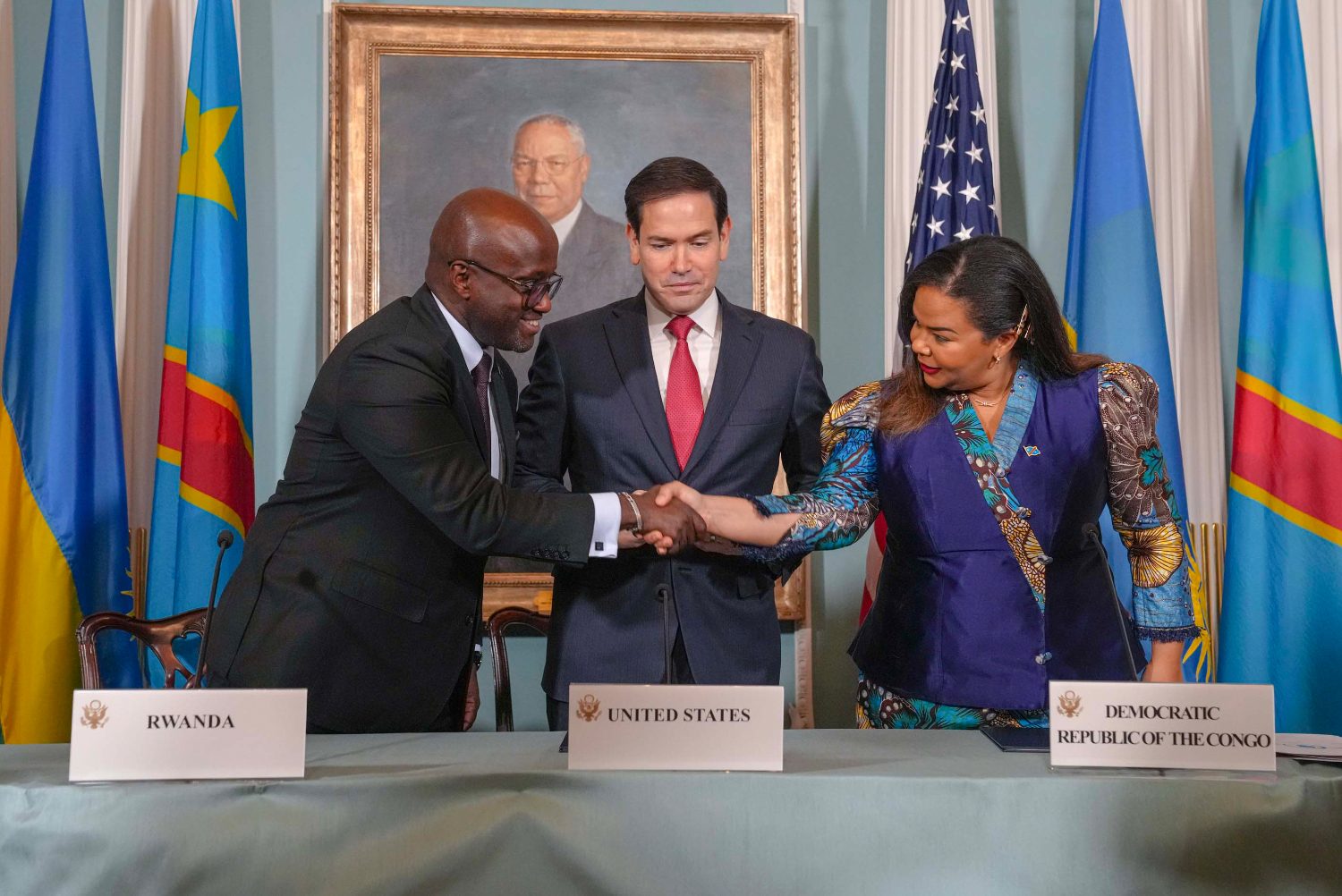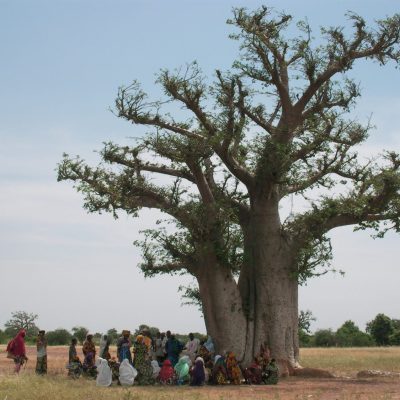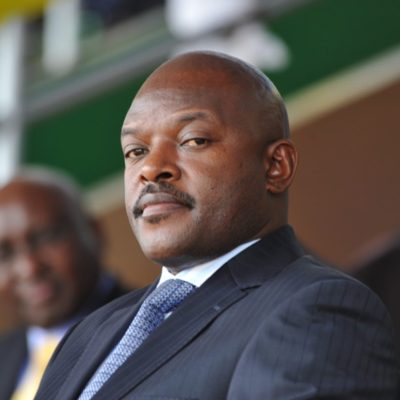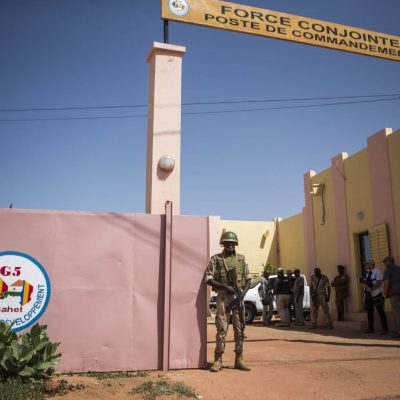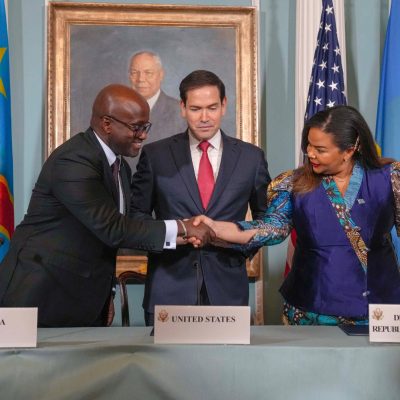The second Trump Administration is reverberating across global systems – politically, economically, socially, and culturally. The world is observing an increasingly transactional and disruptive foreign policy approach, from dramatic aid cuts to multilateral institutions, such as the United Nations (UN), to militaristic threats in West Asia and elsewhere and a regressive stance on gender rights. One of the defining characteristics of this Administration is the emergent doctrine of ‘something for something,’ whereby the United States (US) engagement in global affairs, particularly in peace and security, is conditional upon tangible benefits – primarily economic or strategic resources.
A pertinent example of this approach is the Trump Administration’s reported demand for 50% of Ukraine’s critical minerals – including graphite, uranium, titanium, and lithium – in exchange for continued security assistance.[1] Lithium, essential in battery production for electric vehicles, is of particular strategic interest. A similar arrangement appears to be unfolding in the Democratic Republic of the Congo (DRC), where the African government is seeking a security deal with Washington in exchange for access to the country’s abundant natural resources. In fact, Trump appointed his in-law Massad Boulos as the Senior Advisor for Africa, and Massad’s first overseas trip was to the DRC, Kenya, Rwanda and Uganda. The visit was to do two things: to ‘get more momentum on the peace agreement and the peace process in eastern DRC, and also, how to bring US investment to the region in Central Africa and the Great Lakes region.’[2]
A review of Senior Advisor Boulos’s professional background reveals a strategic alignment with President Trump’s objectives in the DRC. Boulos brings decades of experience in sectors closely tied to the Administration’s emerging interest in resource-for-security exchanges. Notably, he previously held senior executive roles, including Director of Peugeot Nigeria Ltd., Chairman and Chief Executive Officer (CEO) of Nissan Nigeria Ltd., and Managing Director/CEO of SCOA Nigeria Group. The SCOA Group is a prominent conglomerate engaged in the assembly, distribution, sales, and servicing of a wide range of global brands in sectors such as automotive, construction and mining equipment, agriculture, power generation, oil and gas, and industrial machinery. Additionally, the company has substantial interests in contracting and real estate development. Boulos’s extensive background in extractive industries and infrastructure development, especially within the African context, positions him as a key figure in shaping and advancing Trump’s transactional approach to US-Africa relations, particularly in countries like the DRC where strategic natural resource access is a central concern.
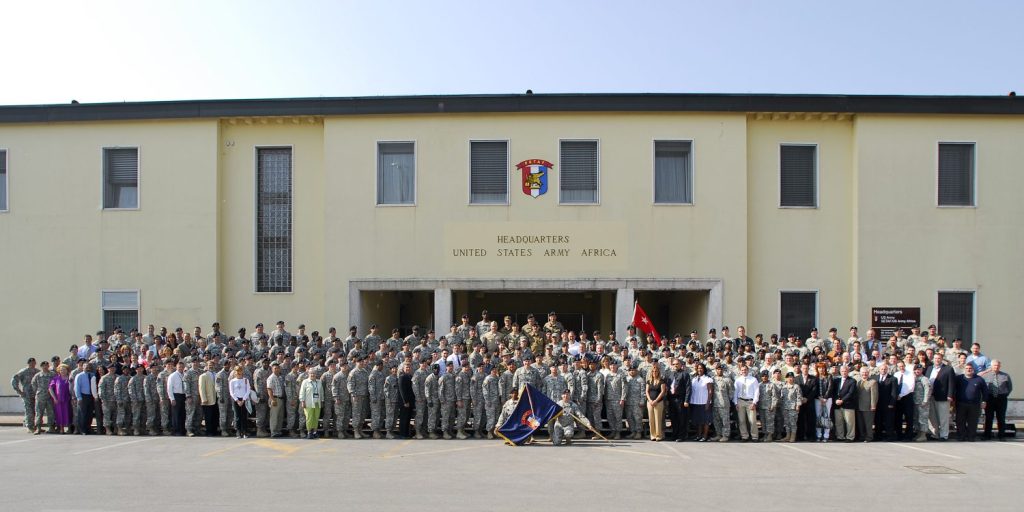
This article explores the implications of such transactional diplomacy for peace and security in Africa, using the DRC as a case study. It interrogates the extent to which African states maintain agency in their security arrangements, the implications of ‘resource-for-security’ deals, and offers recommendations for equitable and effective conflict resolution frameworks.
US involvement in Africa’s peace and security architecture
There is no doubt that the US has historically played a significant role in Africa’s peace and security landscape. A key instrument of its engagement is the United States Africa Command (AFRICOM), headquartered in Stuttgart, Germany. AFRICOM has supported numerous missions across the continent, notably in the Sahel and Somalia, targeting violent extremist groups. According to the Stockholm International Peace Research Institute (SIPRI), the US allocated US$916 billion to military expenditures in 2023, representing 3.7% of its GDP.[3] A portion of this vast budget supports foreign military assistance, including the US$35.7 billion provided to Ukraine, of which at least 70% comprised military aid.
Despite a global increase in military spending – reaching US$2.4 trillion in 2023 – Africa accounted for only 2.1% of this figure. Nonetheless, the continent remains heavily reliant on foreign assistance for intelligence, logistics, capacity building, and peace operations. The United Nations Stabilisation Mission in the Democratic Republic of the Congo (MONUSCO) alone costs the UN Security Council (UNSC) approximately US$1 billion annually.[4] Beyond the DRC, the US has supported military efforts in Rwanda, Somalia and Northern Uganda, and continues to play a major role in multilateral engagements through the UNSC, where it is both a permanent member and the largest financial contributor. Other UNSC Peacekeeping Operations (PKOs) on the continent include the UN Operation in Somalia (UNOSOM) I and II, the UN Multidimensional Integrated Stabilisation Mission in Mali (MINUSMA), and the UN Mission in South Sudan (UNMISS), among others. It is equally important to note the presence of US private security organisations such as CACI and Academi on the continent.
Traditional US military aid and peacebuilding efforts have allowed African states to exercise a degree of agency. For instance, African governments rejected the establishment of AFRICOM bases on the continent, prompting the US to operate from Europe. Furthermore, host governments, such as that of the DRC, have shown their agency by demanding MONUSCO’s exit. In Somalia, the African Union (AU) Transition Mission in Somalia (ATMIS), previously the AU Mission in Somalia (AMISOM), demonstrates the increasing influence of local and regional actors under the principle of ‘African solutions to African problems,’ now central to the AU Peace and Security Architecture (APSA).
While the US-Africa policy has long been marked by ‘strategic neglect,’[5] each administration has varied in its engagement, often treating the continent as secondary in terms of commercial diplomacy. Following the Cold War, low US interest created power vacuums that other actors, particularly China, were quick to fill. Today, China dominates the DRC’s cobalt and copper sectors and controls over 80% of the global cobalt supply. Although previous US administrations maintained some commitment – often without overt conditionality – Trump’s approach has been overtly transactional, prioritising American interests. His renewed attention to African conflicts appears driven less by humanitarian concern than by competition for strategic resources.
‘Resource-for-security’: A new engagement modality
The idea that foreign aid is conditional is not new. Analysts have long argued, for example, that international relations mirror patterns of economic dependency.[6] Other scholars have also concluded that China’s increasing involvement in Africa’s peace and security has similarly followed the continent’s resource corridors. Until recently, when MONUSCO began its drawdown, nearly two-thirds of Chinese troops and police deployed under UN mandates were stationed in Africa, with a significant presence in the DRC. Meanwhile, Russia has expanded its African footprint through the Africa Corps or the Russian Expeditionary Corps (REK). Under this Group, several economic partnerships have been established with war-torn countries. In Syria, for example, the Group deployed in 2015, spent six years there, and gained control of numerous oil and gas resources in return.
The US is thus not alone in using military assistance as leverage for economic interests. What distinguishes Trump’s approach is its transparency. Trump has openly threatened to cut off military assistance to Ukraine unless it agrees to a rare earth elements deal. In Europe, fears are growing in the North Atlantic Treaty Organisation (NATO) about a potential US withdrawal under Trump.[7] Trump further threatened to cut assistance to Canada and make it the 51st state of the US. He has already imposed over 200% tariffs on several Chinese products entering the US in a bid to reduce the trade imbalance. USAID and foreign aid, in general, have lost substantial funding. In fact, the list can go on.
In this context, Africa, and particularly the DRC, becomes a strategic battleground in the global race for critical minerals. Trump’s openness about pursuing resource deals in exchange for security assistance reconfigures the dynamics of US-Africa relations, departing from past norms grounded (at least rhetorically) in values such as democracy and human rights.
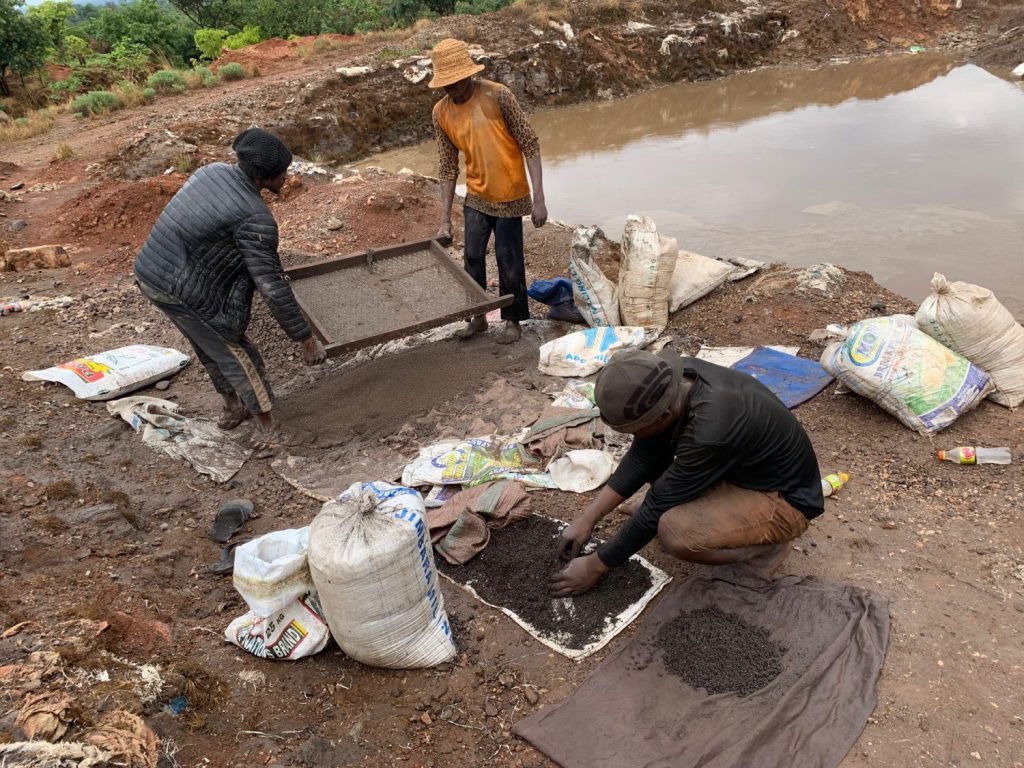
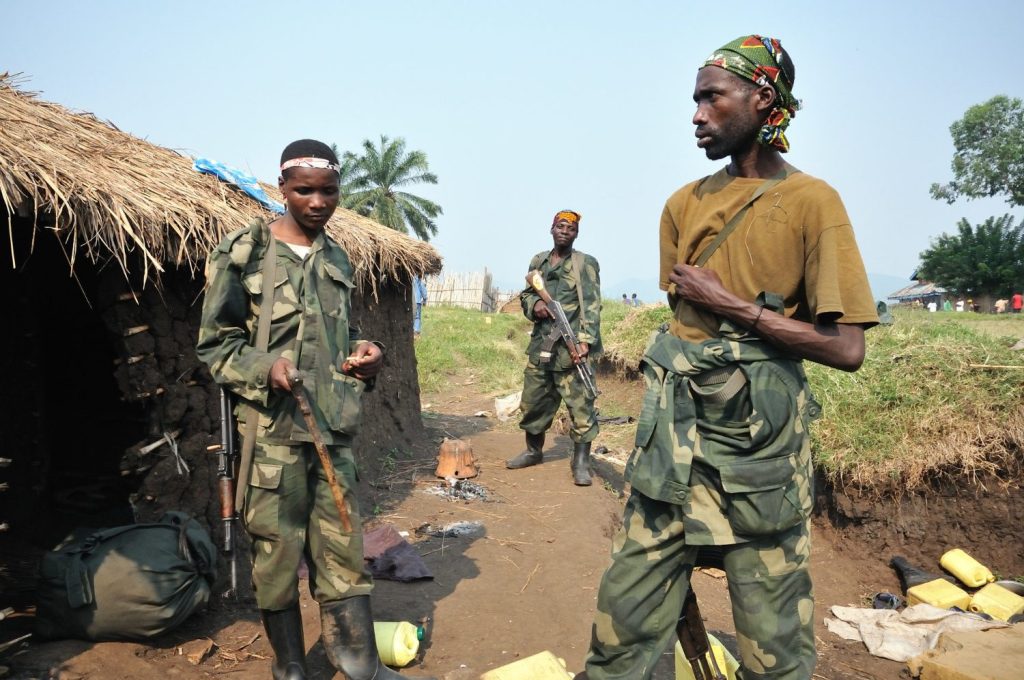
The case of the DRC: Impacts and implications
The DRC is the world’s largest cobalt producer and home to over 120 active rebel groups, most concentrated in the mineral-rich provinces of North and South Kivu. The resurgence of the M23 rebel group, allegedly backed by Rwanda, has further destabilised the eastern region. Despite its mineral wealth, the DRC ranks among the world’s five poorest nations. Trump’s ‘something for something’ strategy risks exacerbating the country’s existing inequalities. The likelihood that resource-for-security deals would disproportionately benefit elites – given the country’s entrenched corruption – is high.
For example, in Transparency International’s 2024 Corruption Perception Index, the DRC scored only 20th out of 100, ranking 163rd out of 180 countries. Moreover, President Félix Tshisekedi’s government, accused of human rights violations and electoral irregularities, has expelled MONUSCO, the East African Community (EAC) peacekeeping forces, and other multilateral bodies from the DRC. In the past, such actions would have prompted diplomatic pushback or sanctions. However, under Trump, the US appears willing to overlook governance failures in exchange for resource access, placing it in the same category as other powers criticised for exploiting the DRC. Additionally, the emphasis on resource extraction could intensify geopolitical competition. As global powers vie for influence, local peace processes may be derailed, and the likelihood of proxy conflicts may increase.
African agency in a shifting global order
An often-overlooked element in analyses of global engagement is African agency, that is, the capacity of African states and actors to influence outcomes in their interactions with more powerful states. Agency is not fixed but depends on factors such as a state’s strategic value, domestic political coherence, and the availability of alternative partners.
In the case of the DRC, renewed interest from the US is driven by three main factors: the country’s critical mineral reserves, China’s growing influence, and, to a lesser degree, the potential for regional or global instability that could undermine US national security. In economic terms, the race for high-value minerals continues. Cobalt, copper, and other rare earth minerals are indispensable for emerging technologies, including electric vehicles (EVs), semiconductors, and military hardware. China’s dominance in the EV sector is undoubtedly facilitated by the vast mineral resources it controls in the DRC. Last year, China’s EV giant, BYD, overtook Tesla to become the world’s leader in the EV industry. This is a direct challenge to US technological leadership. A US-DRC deal would counterbalance this advantage.
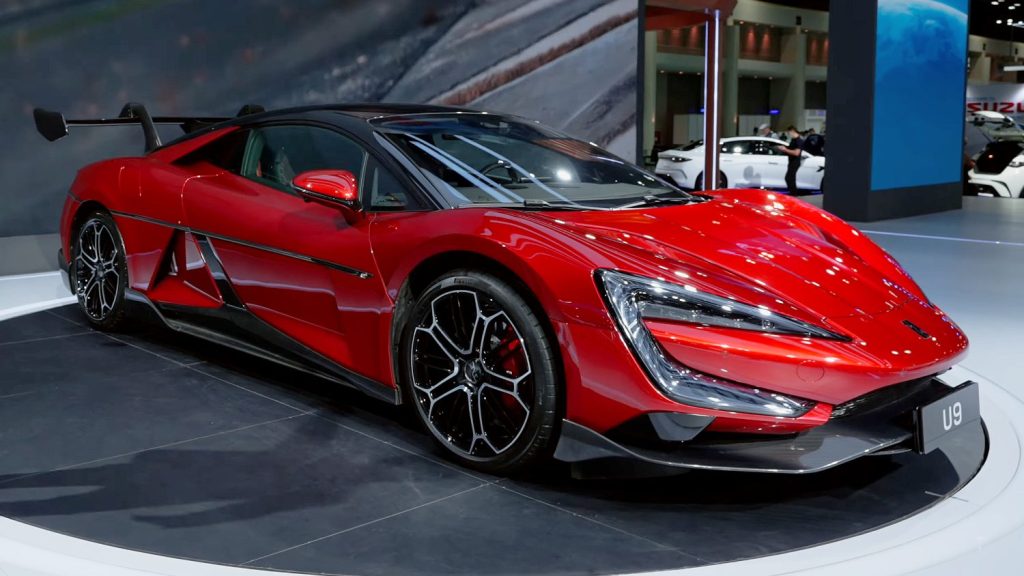
President Trump claimed that it was the DRC that approached the US first, reflecting the country’s desperation amid rising insecurity.[8] This power asymmetry means that any prospective deal is unlikely to be equitable. Ukraine’s attempt to ‘walk back’ a similar minerals-for-security arrangement – described by some analysts as ‘catastrophic’ – should serve as a cautionary tale. Nonetheless, African states are not entirely powerless. The quality of leadership, robustness of civil society, and strength of regional institutions all contribute to shaping outcomes. Unfortunately, in the DRC, many of these institutions are currently weak.
Recommendations
To ensure that the transactional engagements under the current US Administration do not exacerbate fragility in Africa, particularly in the DRC, several measures are necessary. First, local civil society needs to be strengthened. International organisations should prioritise partnerships with Congolese civil society actors to monitor and influence political processes at the government level. These actors can provide crucial oversight and ensure that any agreements are transparent and equitable. Moreover, the DRC needs to be encouraged to reassert multilateral norms. Thus, the AU, Southern African Development Community (SADC), and EAC must reinforce the primacy of multilateralism in regional peace and security. Additionally, the US public, institutions, and lobby groups are crucial. They should demand accountability from the US government. Civil society, businesses, and advocacy groups must hold the US government accountable for its actions abroad. This includes demanding adherence to international labour standards, environmental protections, and anti-corruption norms in foreign engagements. Lastly and more importantly, the DRC must prioritise inclusive consultation.
Conclusion
This article examined the evolving dynamics of US peace and security engagement in Africa under the second Trump Administration, with a particular focus on the DRC. It has analysed the implications of what may be termed a ‘something for something’ approach – where US assistance, particularly in the security domain, is increasingly tied to strategic returns, particularly access to critical minerals. This transactional model marks a significant departure from traditional norms of foreign aid, which, while never entirely altruistic, have historically been couched in the language of development, security, democracy, and human rights.
Taking the DRC as a key case study, the paper has demonstrated the tensions and contradictions inherent in this new model. Furthermore, the paper has highlighted how such arrangements risk undermining African agency and multilateral frameworks for peace and security. Bilateral deals, pursued outside of continental and regional mechanisms such as the AU, SADC, and EAC, not only weaken the collective capacity of African institutions but also legitimise unilateralism at the expense of long-term stability. The Trump Administration’s engagement with Africa, particularly the DRC, must be evaluated not only in terms of geopolitical competition with rivalries like China or economic gain, but also in light of ethical governance, the protection of human rights, and sustainable development. If the US is to retain credibility as a global leader, its foreign policy should reflect a balance between national interest and global responsibility. African states, in turn, must assert their agency through strong domestic institutions, active civil society engagement, and collective regional action to ensure that partnerships – whether with the US, China, or others – are mutually beneficial and do not deepen patterns of dependency or exploitation.
Ultimately, peace and security in Africa cannot be reduced to quid pro quo transactions. Lasting solutions require inclusive, multilateral efforts grounded in mutual respect and the long-term interests of African populations. The DRC, with its vast potential and persistent challenges, stands as both a test case and an opportunity to redefine what equitable global partnerships should look like in the 21st century.
References
[1] Li, Y., & Walker, L. (2025) ‘World politics’, ABC News, 24 February, Available at: https://www.abc.net.au/news/2025-02-24/trump-ukraine-rare-earths-deal-explained/104974570 [Date accessed: March 10, 2025]
[2] US Department of State (2025) ‘Digital Press Briefing: Senior Advisor for Africa Massad Boulos and Deputy Assistant Secretary for African Affairs Corina Sanders’, 17 April, Available at: https://www.state.gov/digital-press-briefing-senior-advisor-for-africa-massad-boulos-and-deputy-assistant-secretary-for-african-affairs-corina-sanders [Date accessed: April 17, 2025]
[3] Tian, N., Da Silva, D. L., Liang, X., & Scarazzato, L. (2024) Trends in world military expenditure, 2023, Stockholm: SIPRI.
[4] UN Peacekeeping (2025) ‘MONUSCO factsheet’, Available at: https://peacekeeping.un.org/en/mission/monusco [Date accessed: March 15, 2025]
[5] Odota, J. (2024) ‘Harris or Trump: America’s Strategy Towards Africa Unlikely to Change Much’, Australian Institute of International Affairs, 9 August, Available at: https://www.internationalaffairs.org.au/australianoutlook/harris-or-trump-americas-strategy-towards-africa-unlikely-to-change-much [Date accessed: April 10, 2025]
[6] Richardson, N. R. (1978) Foreign policy and economic dependence, Austin, TX: University of Texas Press.
[7] Haltiwanger, J., & Iyengar, R. (2025) ‘Europe, NATO Prepare for Post-U.S. Future’, Foreign Policy, 20 February, Available at: https://foreignpolicy.com/2025/02/20/europe-trump-nato-hegseth-vance-munich-defense-spending [Date accessed: April 9, 2025]
[8] Faucon, B. (2025) ‘War-Torn Congo Has a Deal for Trump: Kick Out Rebels, Get Minerals’, The Wall Street Journal, 19 March, Available at: https://www.wsj.com/world/africa/war-torn-congo-has-a-deal-for-trump-kick-out-rebels-get-minerals-295acfb4 [Date accessed: April 11, 2025 ]

